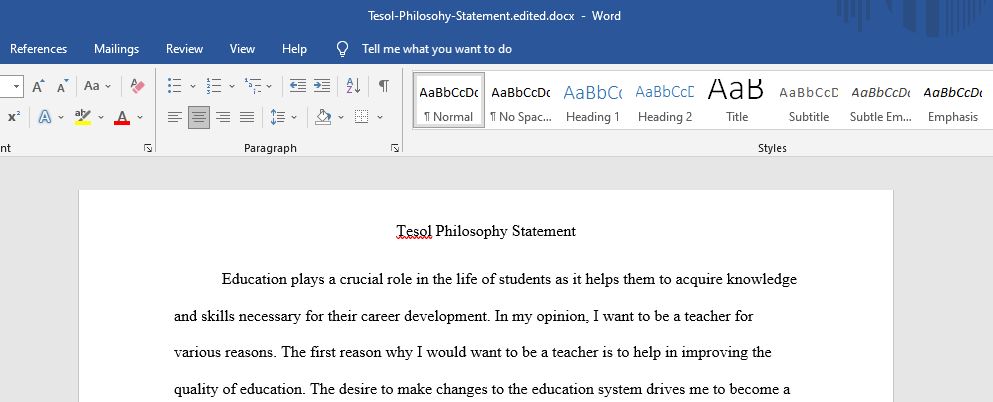Critically describe the Tesol Philosophy Statement
Major Assignment 1: TESOL Philosophy Statement
Purpose: The purpose of this assignment is to develop an initial TESOL philosophy statement explaining how you would approach working with students in your class who don’t speak English. Be sure to keep hold of this statement, as you will need to refer to it at the end of TSL 4081. Ultimately, you’ll want to compare your first statement with your last one.
Directions:
Given what you have learned from Chapter 1; write a 2 to 3-page long statement of education. Your philosophy of education reflects your own approach to education. It will help you focus on why you make the decisions you make as you plan your lessons and implement those lessons. Your philosophy will change as you get mature and gain experience. You may wish to include some of the following items as stimuli for thinking and formulating your philosophy of education:
1. What is the purpose of education, and why do you want to become a teacher?
2. What is the role of the student in the educational process?
3. How do we assure that all students are prepared to assume that role?
4. What is the role of the teacher in the educational process and in the community?
5. How will you reach the wide diversity of children what you will have in your classroom?
6. How do you define your community of learners? How do you think do children learn?
7. How do/does your theories/ theory of learning affect instructional strategies, classroom management, curriculum design, and assessment/ evaluation?
8. How do you balance an individual student’s needs with the entire class’ needs?
9. What are your goals?
10. How will you relate with parents, the community, teaching colleagues, administration?
11. What is the role of school in society?
12. How do we assure that schools serve all students well?
13. How will you include families in the education of their children?
Please do not feel that you have to limit yourselves to the questions listed above. These questions are simply to get you thinking about what you might consider as the components of your philosophy of education.
Answer preview:
Words:653

